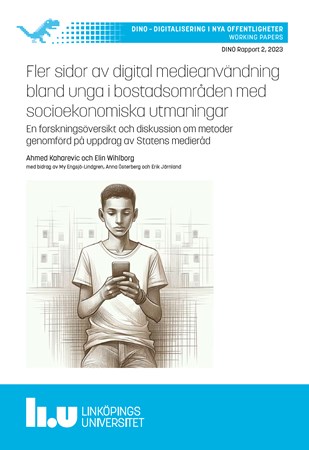Societal theories have been developed over a long time, and we still refer to ancient philosophers. But today, we live in a digital age. How do we then build a sustainable society characterised by inclusion, diversity, and learning?
In RIDE, we will develop and share knowledge about how society’s institutions need to change in response to digitalisation.
Today, we use digital technology for almost everything—communicating, shopping, making payments, listening to music, working, watching films, learning new things, and much more online. This means we also need to rethink how democracy, public administration, and services are designed and organised. It is about developing—redesigning—societal institutions to be sustainable and resilient for everyone in a digital world.
Our research revolves around three key concepts:
Inclusion – covering both formal rules and the experience of being involved, in both a technical and social sense.
Diversity – ensuring institutions are designed for a variety of solutions and ways of living, even though standardisation and automation are fundamental technical approaches.
Competence – focusing on how users can understand, utilise, and benefit from well-designed institutions for a sustainable life in a digital society.
We explore how society can create strong and sustainable institutions in a digital era. In RIDE, researchers from different backgrounds will build on a broad portfolio of projects focused on digitalisation and societal change. We take a critical perspective in our research, questioning existing structures, identifying new patterns, and opening pathways for innovation. By combining diverse expertise and experiences, we foster an environment that enables the development of fundamental knowledge about the public sector in a digital society.
We aim to contribute knowledge that can make institutions more resilient, yet flexible enough to handle different challenges in a sustainable way. The traditionally stable Scandinavian welfare model is facing new challenges, and digitalisation and innovation can be key solutions—if the right institutional conditions are provided.
A particularly important activity for us, generously funded by the Swedish Institute, is to share our knowledge with young professionals from Eastern Europe and the Western Balkans. In these regions, the history of democracy and welfare is relatively short, meaning that new institutions are now being built to shape democracy and welfare directly within a digital era.

